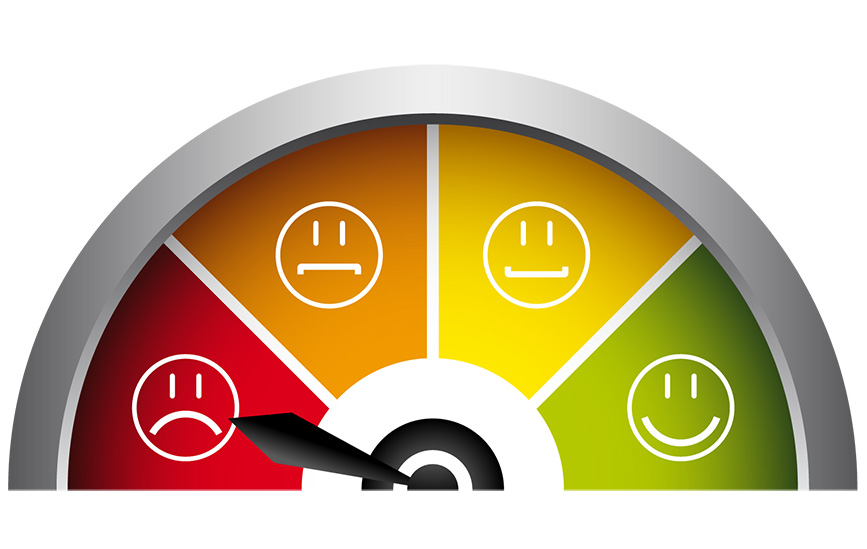If you’re a reseller, you know that it can be a profitable business. But, like any business, it comes with its own set of challenges.
One of the biggest challenges is avoiding mistakes that can waste your time and money. Whether you’re new to the reselling game or a seasoned pro, it’s crucial to be aware of common mistakes and to know how to prevent them.
That’s where this article comes in. In the following sections, we’ll delve into some of the most common reseller mistakes and provide you with practical solutions to avoid them. By learning from the mistakes of others, you’ll be better equipped to navigate the world of reselling and maximize your profits.
Whether you’re selling products online or in person, these tips and tricks will help you avoid common pitfalls and save you time and money in the long run. So, let’s get started!
Common Reseller Mistakes to Avoid
Here are the 10 commons reseller mistakes you must have to avoid:
Mistake #1: Not Knowing Your Market
One of the most common mistakes that resellers make is not knowing their market. You may think you have an idea of what your target audience wants, but without thorough research, you risk investing in products that won’t sell or missing out on high-demand items.
For example, let’s say you’re a reseller of video games. You decide to stock up on the latest sports game titles because they’re popular. However, you failed to research your target audience, and you’re unaware that your audience primarily prefers action and adventure games. As a result, you’re left with a surplus of sports games that don’t sell.
Solution: Conduct market research to identify popular products and trends in your niche. Utilize social media, industry publications, and online forums to gather data and insights into your target audience. Analyze sales data to see what’s selling and what’s not, and adjust your inventory accordingly. By doing so, you can avoid the mistake of not knowing your market and increase your chances of success.
Mistake #2: Overpaying for Inventory
Another common mistake that resellers make is overpaying for inventory. When you pay too much for products, you cut into your profit margin and make it more challenging to compete with other resellers.

For instance, let’s say you’re a reseller of shoes. You find a supplier who offers a new line of shoes at a premium price. Without shopping around, you purchase the shoes and later find out that you could have gotten a better deal from a different supplier.
Solution: Negotiate with suppliers to get the best price possible. Look for bulk buying opportunities, and consider purchasing overstock or clearance items for a lower cost. Don’t be afraid to shop around and compare prices from different suppliers.
By doing so, you can avoid the mistake of overpaying for inventory and maintaining a healthy profit margin.
Mistake #3: Not Diversifying Your Product Range
Focusing too narrowly on a particular product or niche can be a mistake, as it limits your potential customer base and puts all your eggs in one basket. While specializing in a niche can be an advantage, it’s essential to have a diverse range of products to appeal to a broader audience
For example, let’s say you’re a reseller of clothing, and your focus is on men’s formal wear. However, you’re missing out on a significant portion of the market by not offering casual wear or women’s clothing.
Solution: Identify complementary products that you can add to your inventory to diversify your product range. For example, if you’re a reseller of sports equipment, you can also offer fitness apparel, water bottles, and supplements. By diversifying your product range, you can attract a broader customer base and increase your sales.
Mistake #4: Ignoring Customer Service
Another common mistake that resellers make is ignoring customer service. Providing excellent customer service is crucial to building customer loyalty and driving sales. Ignoring customer complaints or inquiries can result in negative reviews and damage to your reputation.
 For instance, let’s say you’re a reseller of electronics, and a customer purchases a faulty product from you. However, you ignore their complaints and refuse to offer a refund or exchange. This results in a negative review and a loss of a potential customer.
For instance, let’s say you’re a reseller of electronics, and a customer purchases a faulty product from you. However, you ignore their complaints and refuse to offer a refund or exchange. This results in a negative review and a loss of a potential customer.
Solution: Make customer service a top priority by responding promptly to inquiries and complaints. Offer refunds or exchanges for faulty products and be transparent about your return policy. By providing excellent customer service, you can build a loyal customer base and a positive reputation.
Mistake #5: Failing to Adapt to Trends
Failing to adapt to new trends and changes in the market can be a significant mistake for resellers. By not staying up-to-date with the latest trends, you risk falling behind the competition and missing out on opportunities.
For example, let’s say you’re a reseller of beauty products, and you fail to adapt to the trend of natural and organic products. As a result, you miss out on a significant portion of the market and lose potential customers.
Solution: Stay up-to-date with the latest trends and changes in your market by reading industry publications and attending trade shows. Offer new and innovative products to stay ahead of the competition and appeal to a broader customer base. By adapting to trends, you can stay relevant and continue to grow your business.
Mistake #6: Failing to Build Relationships with Customers
Reselling is not just about buying and selling products. It’s also about building relationships with your customers. Failing to do so can hurt your business in the long run.
For example, let’s say you run an online store and don’t have a customer support team to handle inquiries and complaints. Your customers may feel neglected and choose to shop elsewhere, resulting in lost sales.
Solution: Invest in building strong relationships with your customers by offering excellent customer service, personalized interactions, and addressing their concerns in a timely and efficient manner. Engage with them on social media and other channels to show that you care about their needs and value their business.
Mistake #7: Ignoring Marketing and Advertising
As a reseller, it’s important to have a marketing and advertising strategy to promote your products and reach new customers. Failing to do so can limit your reach and reduce your sales potential.
For example, let’s say you sell handmade crafts on an online marketplace but don’t invest in advertising or SEO optimization. Your products may not appear in search results or get lost in the vast sea of products available, resulting in lower sales.
Solution: Develop a marketing and advertising plan that fits your budget and business needs. Utilize social media, email marketing, and SEO to promote your products and reach a wider audience. Consider paid advertising options such as Google Ads or Facebook Ads to increase visibility and drive sales.
Mistake #8: Not Keeping Accurate Records
As a reseller, it’s essential to keep accurate records of your inventory, sales, and expenses. Failing to do so can lead to confusion and errors in financial reporting, which can hurt your business in the long run.

For example, let’s say you don’t keep track of your expenses and end up overpaying taxes at the end of the year.
Solution: Use accounting software or hire an accountant to help you keep accurate records of your inventory, sales, and expenses. This will help you make informed decisions about your business, avoid financial mistakes, and save time and money in the long run.
Mistake #9: Neglecting to Adapt to Market Changes
The market is always changing, and failing to adapt to these changes can hurt your business.
For example, let’s say you sell physical DVDs of movies, but with the rise of streaming services, your sales begin to decline.
Solution: Stay up to date with market trends and be willing to adapt your business strategy to meet changing demands. Consider diversifying your product range, offering digital versions of your products, or exploring new sales channels to keep up with the times.
Mistake #10: Underestimating the Importance of Quality Control
As a reseller, the quality of your products is essential to maintaining customer satisfaction and loyalty. Failing to conduct quality control can lead to negative reviews and lost sales.

For example, let’s say you purchase a batch of faulty products from a supplier and sell them without checking for defects. Your customers receive the products and leave negative reviews, resulting in lost sales and a damaged reputation.
Solution: Conduct quality control checks on all products before selling them to customers. This can include visual inspections, functionality tests, and even user testing. Address any defects or issues before selling the product to avoid negative reviews and maintain customer satisfaction.
Useful Information:
Reseller Tips and Tricks:
As a reseller, there are many tips and tricks that you can use to improve your business.
For example, you can use social media to promote your products, take advantage of seasonal trends, and bundle products to increase sales.
By staying up-to-date on industry news and following successful resellers, you can gain insights into best practices and find new ways to optimize your operations.
Maximizing Profits as a Reseller
Maximizing profits is the ultimate goal of any reseller. To achieve this, you need to focus on optimizing your costs, increasing your sales, and finding new revenue streams.
You can optimize your costs by negotiating with suppliers, reducing overhead, and optimizing your supply chain.
Increasing sales can be achieved by improving your marketing efforts, enhancing your customer experience, and expanding your product range. Finally, finding new revenue streams can be accomplished by offering value-added services, such as customization or installation, or by exploring new market opportunities.
Effective Reselling Strategies
To succeed as a reseller, you need to develop effective strategies that allow you to stay ahead of the competition. Some effective reselling strategies include offering unique products or services, targeting niche markets, building a strong brand identity, and optimizing your online presence. By focusing on what makes your business unique, you can differentiate yourself from the competition and attract a loyal customer base. Additionally, by leveraging online platforms, such as Amazon or eBay, you can reach a wider audience and increase your sales potential.
Conclusion:
In conclusion, as a reseller, avoiding these common mistakes is crucial to save time and money while maximizing your profits. By conducting thorough market research, negotiating with suppliers, diversifying your product range, prioritizing customer service, and adapting to trends, you can position yourself for success in the reselling industry.
Remember, it’s crucial to continuously learn and adapt to the ever-changing market trends and consumer preferences. Keep an eye on your competition, stay updated on the latest industry news, and be willing to take calculated risks to stay ahead of the game.
By implementing the tips and tricks outlined in this article, you can avoid costly mistakes and achieve long-term success as a reseller. So, take action and start implementing these strategies to maximize your profits and grow your reselling business!
Related FAQ:
Q: What are the problems in reselling business?
A: Reselling can be a profitable business, but it comes with its own set of challenges. One of the biggest challenges is the competition from other resellers. Finding a niche market and staying ahead of the competition is crucial for success. Another challenge is managing inventory and pricing to ensure profitability. Additionally, resellers need to stay updated with market trends and adjust their strategies accordingly.
Q: What are the rules of reselling?
A: The rules of reselling vary depending on the platform and industry, but there are some general guidelines to follow. Resellers must comply with laws and regulations regarding product safety, trademarks, and copyrights. They also need to follow the platform’s terms of service, such as listing requirements and prohibited items. Additionally, resellers should be transparent about the condition and authenticity of the products they sell and provide accurate descriptions and photos.
Q: Why do retailers not like resellers?
A: Retailers may not like resellers because they see them as competition. Resellers can often offer lower prices than retailers since they purchase products in bulk or from sources other than the manufacturer. This can result in retailers losing sales and profit. Additionally, retailers may be concerned about the quality and authenticity of the products sold by resellers, as well as the potential for brand damage from poor customer experiences.
Q: What do I need to know before reselling?
A: Before starting a reselling business, it’s important to research your market and identify a niche. You should also research potential suppliers and understand the cost of goods and profit margins. It’s important to have a solid understanding of the platform or marketplace you plan to sell on, including their fees, listing requirements, and policies. You should also be aware of any legal requirements or regulations regarding reselling in your industry.
Q: What are the major selling issues?
A: The major selling issues for resellers include managing inventory, setting prices, and staying ahead of the competition. Resellers need to find a balance between pricing products competitively while also maintaining profitability. They also need to stay up to date with market trends and adjust their inventory and pricing strategies accordingly. Additionally, resellers need to manage customer expectations and provide excellent customer service to build a positive reputation and customer loyalty.




